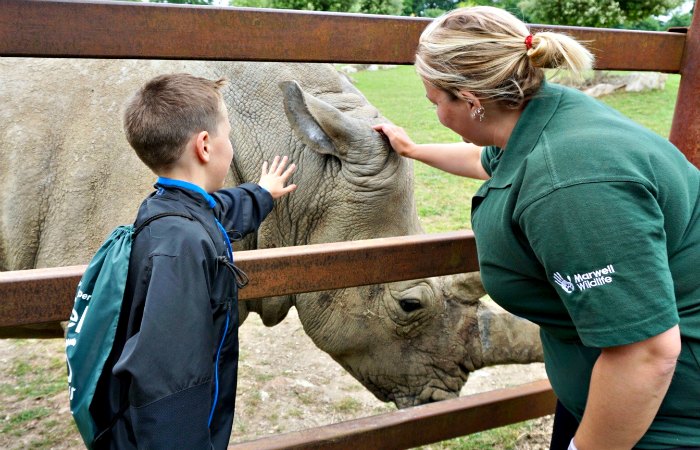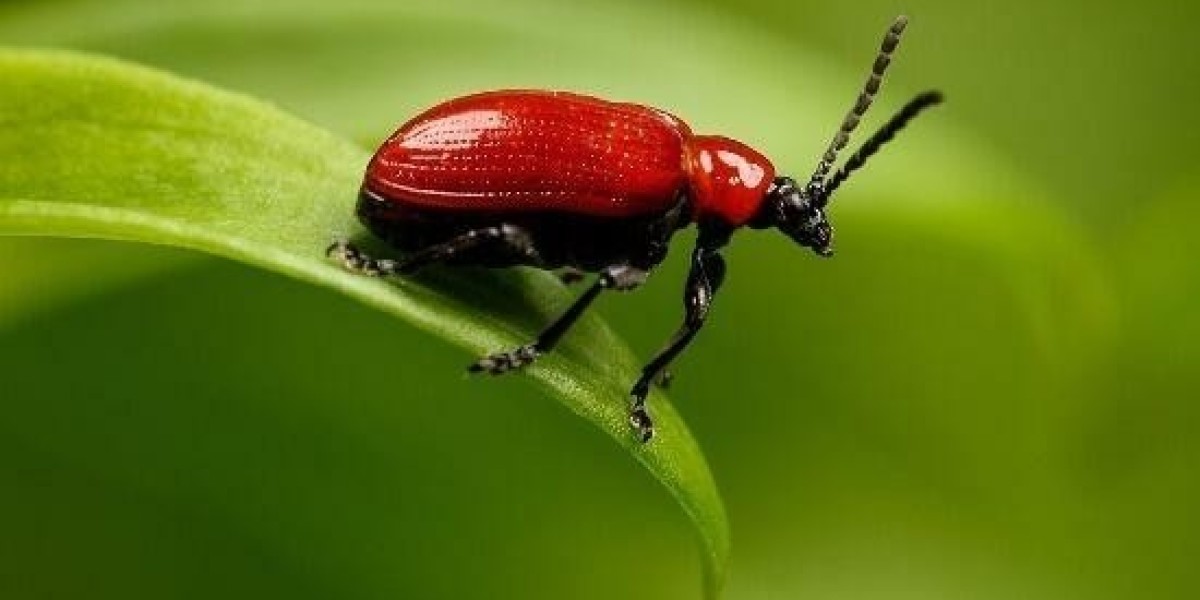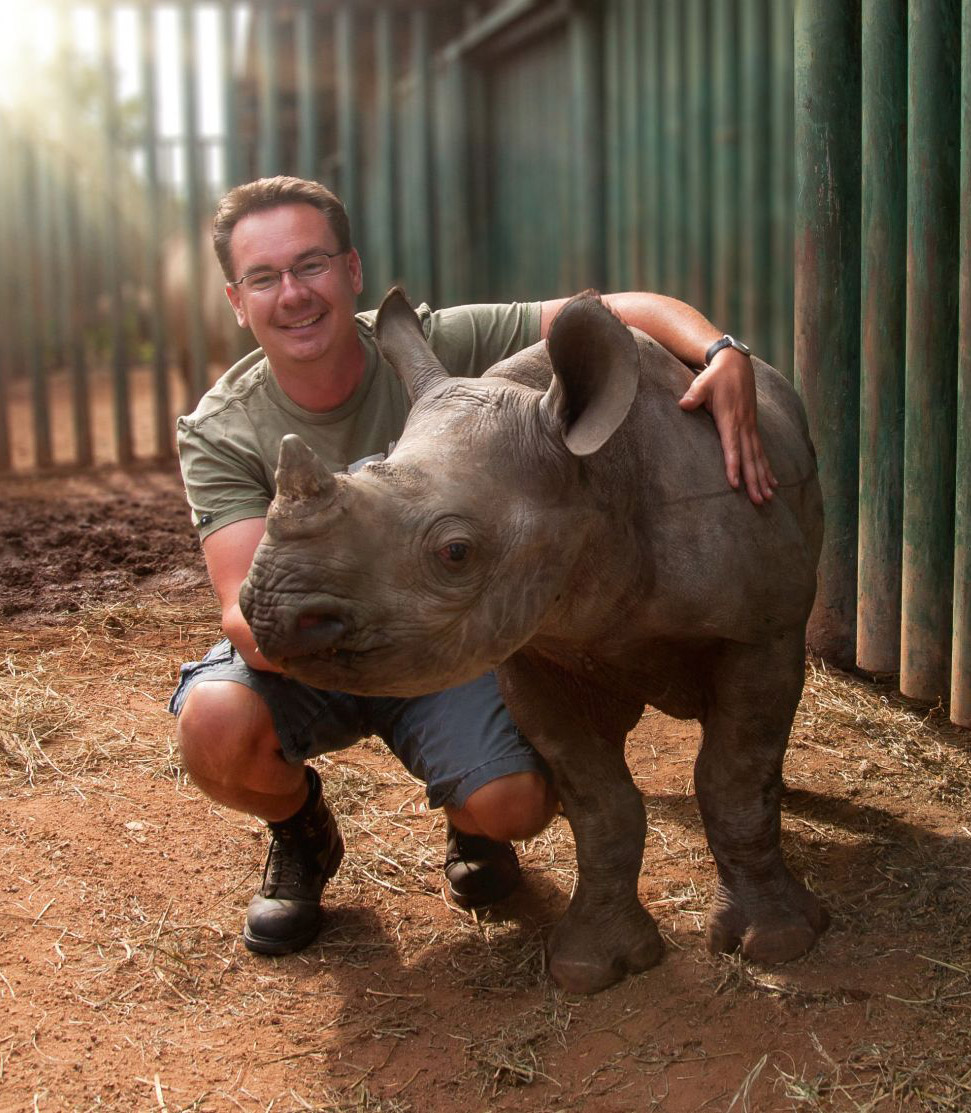
"The achievement of a country and its ethical development can be judged by the way its animals are treated." - Mahatma Gandhi
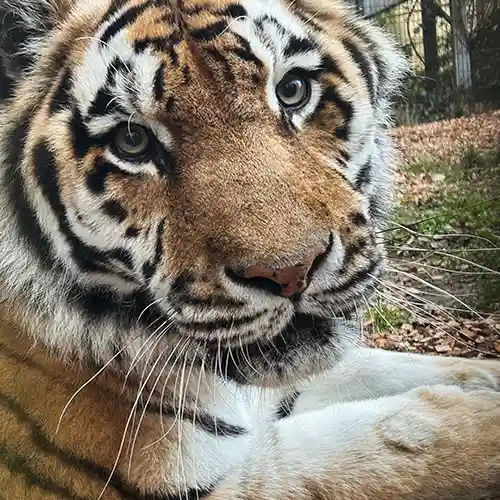
Do you love animals and dream of working in a zoo? Zoo keepers are type in safeguarding wildlife and caring for animals. At locations like the Zoological Society of London (ZSL), over 20,000 animals get the care they need from professionals.
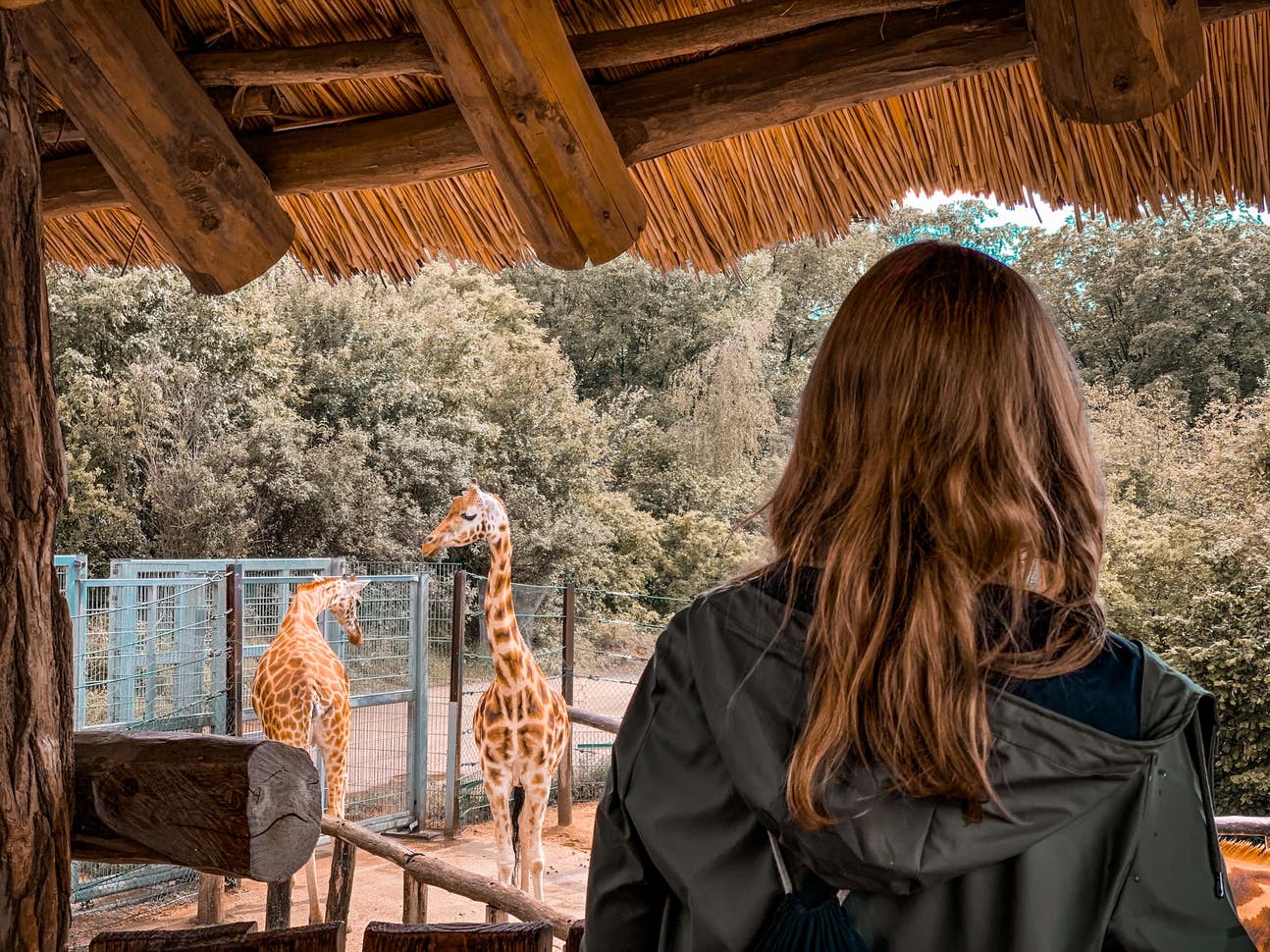
To become a zoo keeper, you require effort, education, and a love for animals. This job is amazing, zookeeper letting you work with lots of species and assist with important conservation work. If you're into wildlife or animal welfare, zookeeping might be best for you.
Beginning your zoo keeper career means learning what's required. This guide will cover education, experience, and more. It's all you need to understand to start a fulfilling zookeeping career.
Understanding the Role of a Zookeeper
Exploring what a zookeeper does exposes a function loaded with challenges and rewards. They focus on animal welfare and conservation. Zookeepers strive to keep animals healthy and happy in their care.
Daily Responsibilities and Tasks
A zookeeper's day is filled with important tasks:
- Preparing meals that meet each animal's nutritional requirements
- Cleaning up enclosures to keep them clean and safe
- Watching over animal health and behaviour
- Providing medicines and treatments as required
- Producing activities to keep animals mentally sharp
Workplace and Conditions
Zookeepers work outside in all kinds of weather condition. They handle both indoor and outside areas. The task needs being healthy and able to manage the needs of caring for animals.
"Being a zookeeper is more than a task - it's an enthusiastic dedication to animal care and conservation."
Kinds of Animals and Specialisations
Zookeepers can specialise in many animal groups:
- Primates
- Big cats
- Marine mammals
- Reptiles
- Birds
Your function might involve dealing with 2-5 various animal types. This requires a great deal of understanding and the capability to adapt.
Important Skills and Personal Qualities for Zoo Keeping
To be a leading zookeeper, you require more than just a love for animals. Your job will be difficult and require you to handle animals and people well. You'll also require to understand animal behaviour.
What zoos search for in people includes:
- Exceptional persistence and psychological resilience
- Strong fitness and stamina
- Eager observation skills
- Ability to stay calm under pressure
- High level of empathy towards animals
Getting hands-on experience is essential to mastering this role. You'll need to show:
- Advanced understanding of animal care techniques
- Proficiency in animal handling and safety protocols
- Reliable communication with both animals and human visitors
"An excellent zookeeper connects science, compassion, and conservation in every interaction with animals."
You must understand about animal nutrition, behaviour, zookeeper and basic vet care. Most zookeepers learn through training, offering, and continuous knowing.
Zookeeper work is not simply a task. It's a big commitment to teaching about wildlife and assisting conservation. Your passion and effort will make you stick out in this fulfilling career.
How to Become a Zoo Keeper
Starting a career as a zookeeper needs cautious preparation and education. You should initially understand the academic requirements and training paths. These will turn your love for animals into a job.
Educational Requirements
To be an excellent zookeeper, you require a strong academic base. Most tasks search for certain credentials:
- At least 5 GCSEs at grade 4 or above, consisting of English, maths, and science
- A levels or higher education credentials
- A college degree in biology or animal science
- Level 3 Diploma in Animal Management
Necessary Certifications
Getting unique certifications can truly help you in your zookeeper career. Crucial ones consist of:
- Diploma in Management of Zoo and Aquarium Animals (DMZAA)
- Zookeeping Level 3 Diploma (RQF)
- Animal dealing with certificates
- Emergency treatment certifications
Training Programs and Apprenticeships
Getting hands-on experience is type in zookeeper training. Lots of places use great opportunities:
- Unpaid apprenticeships at wildlife parks
- Internship programmes at popular zoos
- Practical training at places like Colchester Zoo and Dartmoor Zoo
- Offering to acquire real-world skills
Pro tip: Create a detailed portfolio to reveal your animal care skills. It will assist you in job applications.
Building Relevant Experience in Animal Care
Acquiring hands-on experience is essential for those wishing to be zookeepers. The task is very competitive. So, it's essential to begin building a strong base in animal care.
Your journey starts with finding methods to work directly with animals. This is a tactical action.
"Experience is the very best instructor in animal care" - Wildlife Conservation Experts
Here work ways to gain experience working with animals:
- Volunteer at local animal shelters to establish basic animal managing skills
- Seek internships at wildlife rehab centres
- Check out part-time positions at veterinary centers
- Contact your local zoo for possible volunteer opportunities
Offering is an excellent way to learn about animal behaviour and care. Many zoos and zookeeper animal shelters are searching for people who wish to learn. These locations use excellent chances to get hands-on experience and show your commitment to animal welfare.
Here are some suggestions to maximize your experience:
- Keep a record of your skills and interactions
- Get in touch with experts in animal care
- Request referrals and recommendation letters
- Stay consistent and reveal your real enthusiasm
Remember, practical experience makes you stand apart in the zookeeping world. Each time you deal with animals, you learn more. This increases your opportunities of getting a job in animal care.
Career Pathways and Professional Development
Starting a profession as a zookeeper is interesting. It uses numerous possibilities to grow and specialise. Your journey starts with understanding the different courses in this field.
Entry-Level Positions
Entry-level jobs in zookeeping are a terrific start. They give you hands-on experience. Zoos try to find prospects with:
- Level 2 Diploma in Animal Care (minimum qualification)
- GCSEs in English and a clinical topic
- Volunteer experience at animal shelters or farms
Profession Progression Opportunities
As you gain experience, your profession can grow. You can move up to:
- Junior Keeper
- Senior Keeper
- Group Leader
- Specialist Roles
"Continuous knowing and useful experience are crucial to advancing in your zookeeping profession."
Specialised Roles
You can likewise pick special areas like:
- Conservation breeding programmes
- Animal training
- Wildlife research study
- Educational outreach
About 25% of zookeepers get advanced degrees in zoology or animal conservation. Getting Level 4 certifications can improve your chances for senior functions and research study.
Working Hours and Physical Demands
Ending up being a zookeeper implies you'll work more than just routine hours. You'll deal with difficult physical difficulties and need to be flexible, zookeeper consisting of weekends and holidays. Zoos are open every day, so you'll often work when others unwind.
"Zoo keeping is not a typical 9-to-5 task-- it's a lifestyle of dedicated animal care and commitment."
This task is physically demanding. You'll work outside in any weather, lifting heavy items over 50 pounds. Your jobs might include:
- Early early morning feeding schedules
- Cleaning animal enclosures
- Preparing specialised diets
- Performing health checks
- Keeping complex habitats
Shifts can start as early as 5 AM and go late into the night. You'll be on your feet the majority of the time, moving in between animal zones. Weekends and holidays are part of the task, requiring great deals of stamina and commitment.
Despite the difficulties, this task has excellent benefits. You'll grow strong, both physically and emotionally. You'll also make fantastic connections with extraordinary animals.
Health and Safety Considerations
Being a zookeeper features its own set of challenges. It's important to understand how to keep both animals and staff safe. This suggests following strict health and safety guidelines.
Zookeepers deal with an unique environment where security is key. Research studies reveal that health and safety are now as crucial as the zoo's main work.
Threat Management Strategies
There are several ways to manage threats in zoos:
- Daily checks of animal enclosures for threats
- Counting animals at the start and end of shifts
- Enjoying how visitors act near animals
- Being ready for emergencies
Animal Handling Safety Protocols
Understanding which animals are most hazardous is crucial. Big animals like rhinos can be extremely dangerous. There have been cases where zookeepers got seriously harmed.
Security isn't practically wearing gear - it's about knowing animal behaviour and staying alert.
Individual Protective Equipment
Zookeepers need to wear the right gear, consisting of:
- Special gloves for dealing with animals
- Strong shoes for grip and safety
- Clothes that secures against bacteria
Getting immunized against diseases like hepatitis B and rabies is likewise crucial. It helps keep zookeepers healthy in their tough job.
Salary Expectations and Job Market
Considering a career in zoo keeping? It's important to understand about salaries and the job market. The field is growing, with more opportunities in the UK.
Let's take a look at what zoo keepers can make at various stages:
- Entry-level zookeepers start at about ₤ 14,000 a year
- Qualified ones make between ₤ 16,000 and ₤ 22,000
- Senior zookeepers can earn approximately ₤ 30,000 or more
The task outlook for zoo keepers is great. The sector is anticipated to grow by 5% in the UK by 2029. This implies around 3,910 brand-new tasks will be readily available.
"The Association of Zoos and Aquariums supports professional development for zoo keepers," a report states.
Incomes vary based on numerous things:
- Experience level
- Expertise
- Where you work
- The zoo's size and type
While the pay may not be high, the joy of dealing with animals is valuable. The typical income is around ₤ 17,000. But, overall profits can be between ₤ 13,000 and ₤ 27,000 a year.
Conclusion
Starting a career in animal care is an interesting journey. It needs dedication, passion, and a love for learning. With over 350 zoos and wildlife locations in the UK, there are numerous job opportunities. You'll get to work with remarkable animals and assist safeguard wildlife.
To be a zoo keeper, you need more than simply love for animals. You need to have a good understanding of biology, have the ability to interact well, and constantly wish to learn more. You'll gain hands-on experience, learn more about animal welfare, and develop a deep regard for nature. About 3,000 individuals in the UK have discovered fulfilling careers in this field.
Your success in zoo keeping originates from mixing science with a love for animals. Whether you're interested in mammals, birds, or marine life, zookeeper this task lets you help with preservation. Every day will bring brand-new obstacles and learning chances that will improve your skills and knowledge.
If you love animals and wish to assist safeguard wildlife, zoo keeping might be for you. Take on the challenge, stay curious, and turn your passion for animals into a fulfilling profession.
